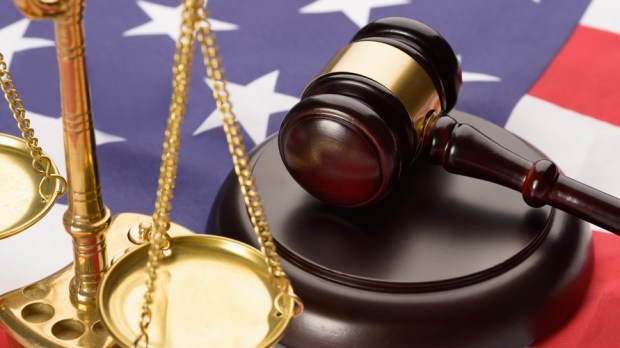Lenten Campaign 2025
This content is free of charge, as are all our articles.
Support us with a donation that is tax-deductible and enable us to continue to reach millions of readers.
The Little Sisters of the Poor will have their day in court again. Well, sort of.
In the midst of a continuing “lockdown” to stem the spread of the novel coronavirus, the Supreme Court of the United States will be taking the extraordinary measure of hearing oral arguments by phone. And one of the cases the justices will hear argued in that manner is Little Sisters of the Poor Saints Peter and Paul Home v. Pennsylvania.
The Court announced Monday that it will hear oral arguments by telephone conference on May 4, 5, 6, 11, 12 and 13 in a limited number of previously postponed cases.
“In keeping with public health guidance in response to COVID-19, the Justices and counsel will all participate remotely,”said a SCOTUS press release. “The Court Building remains open for official business, but most Court personnel are teleworking. The Court Building remains closed to the public until further notice.”
The Little Sisters case arose from the controversial implementation of a rule that grew out of the Affordable Care Act. That 2010 law included a section that requires coverage of preventive health services and screenings for women. The following year, the Obama administration required employers and insurers to provide women with coverage at no cost for all methods of contraception approved by the Food and Drug Administration. The so-called “contraceptive mandate” carried an exemption for houses of worship, but not faith-based institutions.
The Little Sisters of the Poor became a high-profile litigant in fighting the requirement. Although they operate elderly care homes and employ mostly lay people, they were vindicated in their claim that they should not have to pay for or facilitate insurance policies that cover devices and practices that are contrary to Catholic teaching.
Represented by Becket, a nonprofit religious liberty law firm, the Sisters argue that the high court has never definitively resolved the question of whether forcing religious objectors to provide health plans that include contraceptive coverage violates the Religious Freedom Restoration Act (RFRA).
The 1993 RFRA says that government requirements placing a substantial burden on religious practices are subject to an exceptionally demanding form of judicial scrutiny.
In 2017, the Trump Administration issued Interim Final Rules that expand exemptions from the contraceptive mandate for organizations, colleges and businesses that have religious or moral objections to furnishing coverage for employees (or enrolled students), as well as for employees who object to having such coverage. But several states have sought to invalidate the final rules. Becket pointed out that a nationwide injunction against the final rules is based on the theory that RFRA and the Affordable Care Act “not only do not require, but do not even allow, the religious exemption rules.”
“It is clear that the litigation will not end unless and until this Court provides definitive guidance on the RFRA question,” says Becket’s application for review by the Supreme Court.
Brigitte Amiri, a lawyer with the American Civil Liberties Union’s Reproductive Freedom Project, said the Trump administration’s approach of “allowing employers and universities to use their religious beliefs to block employees’ and students’ birth-control coverage isn’t religious liberty — it’s discrimination.”
But the Trump administration argues that the new exceptions were authorized by the Affordable Care Act and required by RFRA.
SCOTUS also will hear by teleconference Our Lady of Guadalupe School v. Morrissey-Berru and St. James School v. Biel, which involve two California Catholic schools defending themselves against fired teachers who claimed job discrimination. The schools maintain that they should be able to choose who teaches the faith to their students.

